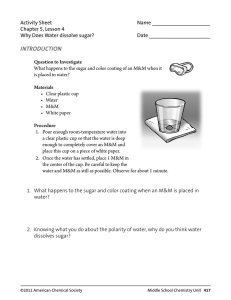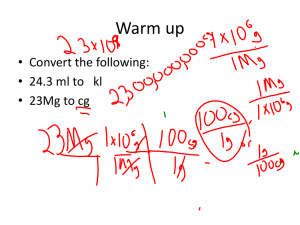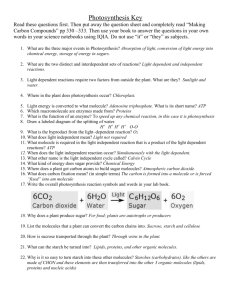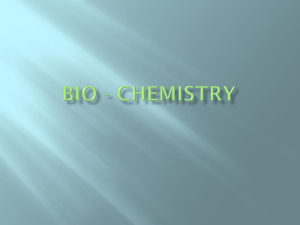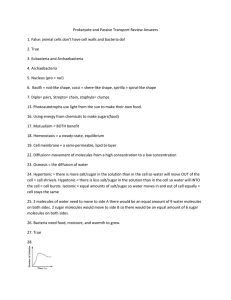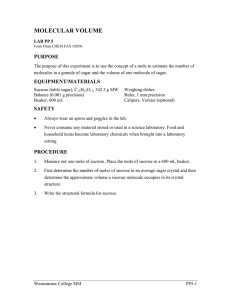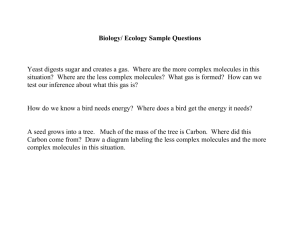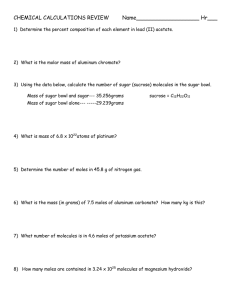Chapter 5, Lesson 4 Activity Sheet Answers behind just the chocolate.
advertisement
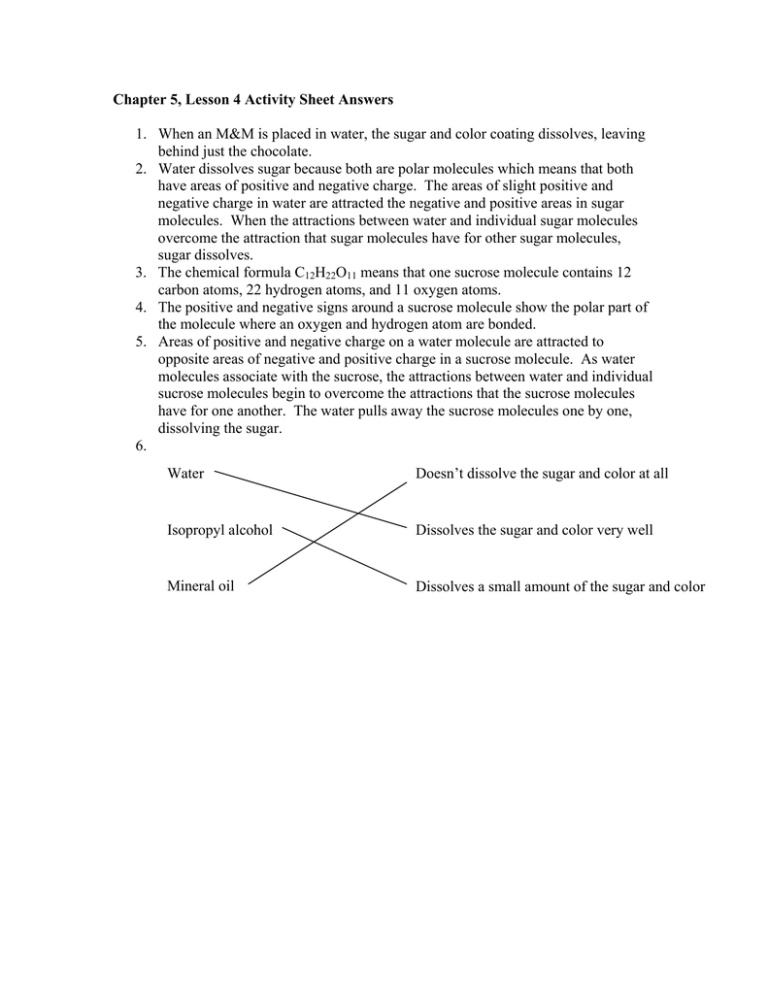
Chapter 5, Lesson 4 Activity Sheet Answers 1. When an M&M is placed in water, the sugar and color coating dissolves, leaving behind just the chocolate. 2. Water dissolves sugar because both are polar molecules which means that both have areas of positive and negative charge. The areas of slight positive and negative charge in water are attracted the negative and positive areas in sugar molecules. When the attractions between water and individual sugar molecules overcome the attraction that sugar molecules have for other sugar molecules, sugar dissolves. 3. The chemical formula C12H22O11 means that one sucrose molecule contains 12 carbon atoms, 22 hydrogen atoms, and 11 oxygen atoms. 4. The positive and negative signs around a sucrose molecule show the polar part of the molecule where an oxygen and hydrogen atom are bonded. 5. Areas of positive and negative charge on a water molecule are attracted to opposite areas of negative and positive charge in a sucrose molecule. As water molecules associate with the sucrose, the attractions between water and individual sucrose molecules begin to overcome the attractions that the sucrose molecules have for one another. The water pulls away the sucrose molecules one by one, dissolving the sugar. 6. Water Doesn’t dissolve the sugar and color at all Isopropyl alcohol Dissolves the sugar and color very well Mineral oil Dissolves a small amount of the sugar and color The polarity of a solvent and how well sucrose dissolves in it Solvent How polar is the solvent? How? Water Polar Dissolves totally Isopropyl alcohol Slightly polar Dissolves some Oil Non-polar Doesn’t dissolve at all 7. Citric acid is very soluble in water because, like water, it has oxygen-hydrogen bonds giving it areas of slight positive and negative charge. Water is attracted to these areas. Water’s attraction for each citric acid molecule is able to overcome the attractions that citric acid molecules have for other citric acid molecules, and so the substance dissolves in water.
